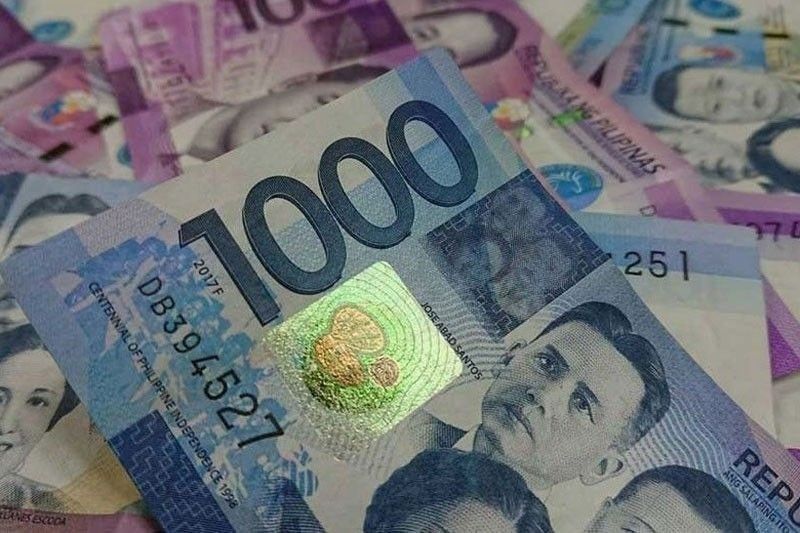Philippines seeks to avert FATF gray listing

As ‘dirty money’ deals surge 57%
MANILA, Philippines — The Anti-Money Laundering Council (AMLC) remains confident that the Philippines will remain out of the list of countries with massive sums of suspected “dirty money” transactions.
AMLC chairman and Bangko Sentral ng Pilipinas Governor Benjamin Diokno said the gray listing of the country by the Paris-based Financial Action Task Force (FATF) could still be averted as President Duterte has certified as urgent Senate Bill 1412 and House Bill 6174, which are pushing amendments to Republic Act 9160 or the Anti-Money Laundering Act (AMLA).
“If any of the proposed amendments are not passed and implemented before February, the Philippines will be included in the FATF gray list. We remain optimistic that gray
listing can be averted as no less than the President himself has certified the bills as priority over other bills,” Diokno said.
The STAR earlier reported that the country’s observation period has been extended to February next year due to the COVID-19 pandemic. The FATF would decide in June whether or not the Philippines would be included in the watchdog’s gray list.
The Philippines was blacklisted in 2000 for failing to address dirty money issues, paving the way for the enactment of RA 9160 or AMLA in 2001. The country was subsequently removed from the blacklist in February 2005.
It narrowly avoided being placed on blacklist in 2012 as it criminalized terrorist financing and pursued quicker freezing of suspect accounts.
The AMLC, meanwhile, reported a 57 percent jump in the number of suspicious transactions valued at P3.21 billion from January to August as financial criminals took advantage of the COVID-19 pandemic.
Diokno said the COVID-19 Financial Crime Trend Analysis and Typologies Brief, Series 2 of the AMLC showed a surge in suspicious transaction reports (STRs) during the eight-month period while the lockdown was in place to contain the spread of the virus.
Of the total STR submissions, Diokno said 29 percent occurred between March 16 and Aug. 31.
During the period, the BSP chief pointed out STR submissions of electronic money issuers (EMIs) surged 688 percent, while those of pawnshops and money service businesses (MSBs) jumped 51 percent.
For the eight-month period, Diokno said bulk or 49 percent of the total STRs with a value of P2.7 billion involved unauthorized account access through skimming and phishing, and other violations of the Electronic Commerce Act.
On the other hand, he added online sexual exploitation of children and related crimes involving P84.5 million followed with a share of 13 percent.
Likewise, Diokno said suspected money mules or pass-through accounts involving P406.9 million accounted for the remaining nine percent of the total STRs.
AMLC also reported suspected smurfing scheme and money mule or pass-through accounts including fraudsters pretending to be affiliated with a government unit and a government agency such as the Office of the Governor of Laoag City and Department of Public Works and Highways in soliciting COVID-19 donations as well as online shopping swindling scheme involving Bitcoin.
The latest report of the AMLC, a follow-up from Series 1 released last July, showed a surge in STRs related to electronic banking transactions with a 1,680 percent surge for inward fund transfers and 5,158 percent jump for outward fund transfers amid the sharp rise in online and electronic money transactions for money laundering.
Furthermore, the report also showed a 580 percent jump in cash-in electronic fund transfers as well as 197 percent surge in cash-out via electronic cash cards.
AMLC added other notable red flags include large incoming or outgoing transactions for COVID-19 or other humanitarian causes with no valid documentation and unsubstantiated deposits or fund transfers as alleged payment for products and/or services rendered to government units for COVID-19 relief efforts;
Also included are continuous or unusual account transactions of businesses adversely affected by the pandemic, receipt of large deposits allegedly caused by changes in the nature of employment and business allegedly due to the pandemic vis-à-vis the client account information during the on-boarding process and receipt of large deposits allegedly for the sale of medical items or donations for COVID-19 relief efforts from unusual senders or channels, such as virtual currency companies.
- Latest
- Trending


























